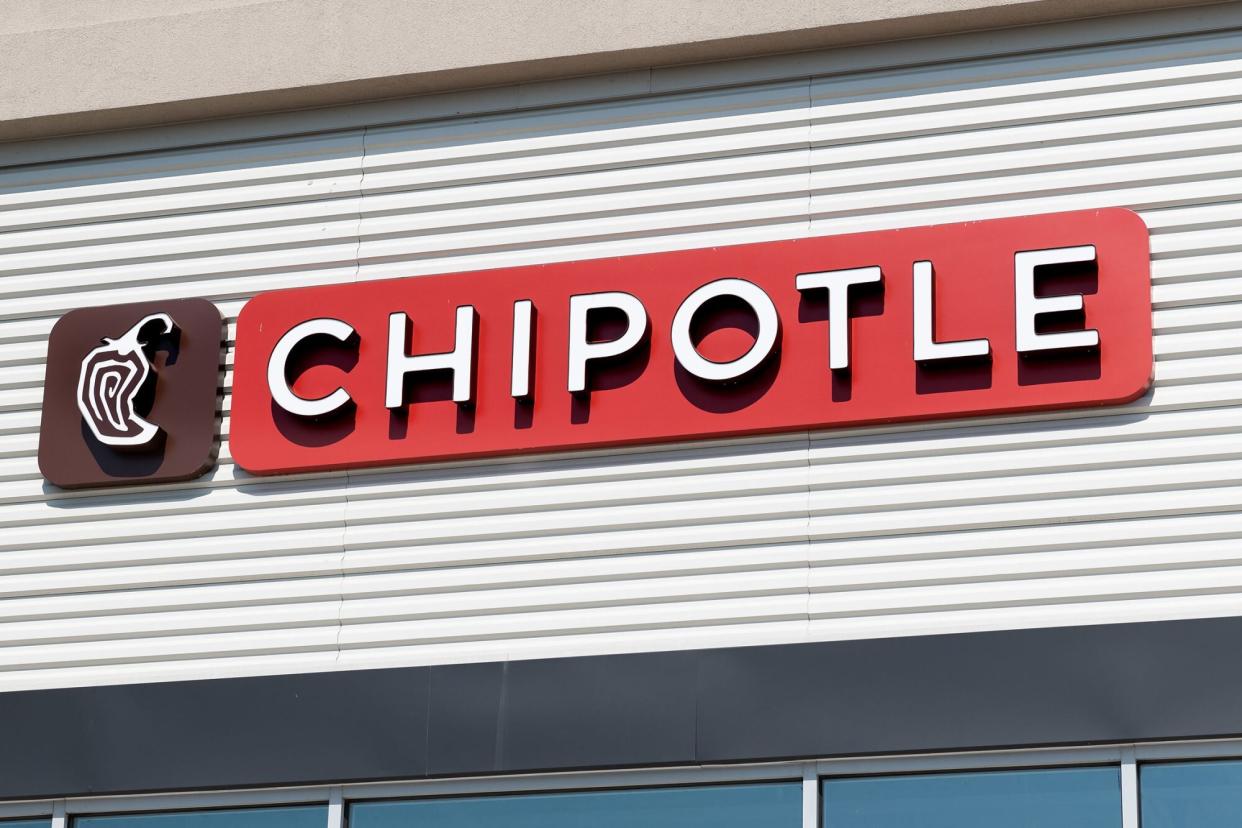Chipotle Closes Store That Voted to Form Chain's First Union, Citing Staffing Issues

Michael Brochstein / SOPA Images / LightRocket via Getty Images
Thanks in large part to a growing national push from Starbucks' employees, interest in unionization at restaurant chains has surged significantly in the past year. Last month, a Chipotle Mexican Grill location in Augusta, Maine, decided to join the movement, becoming the first store with the burrito brand to petition for a union election. But now, just as Starbucks has faced multiple accusations of union-busting by closing locations, Chipotle is under fire after announcing the permanent closure of its Augusta restaurant.
As the Maine AFL-CIO, a federation of unions across the state, explained when the Augusta location first announced its union plans back in June, employees at the store were seeking to unionize in large part due to a demand for "safe, adequate staffing at their store." Interestingly, Chipotle offered that exact explanation when announcing the store's closure yesterday.
"Despite the considerable time and resources we've spent trying to staff the restaurant, we don't have management necessary to reopen and, combined with the ongoing callouts and lack of availability of existing staff, we won't be able to open the restaurant for the foreseeable future," Lisa Zeppetelli — Chipotle's people experience partner, Northeast — wrote in an email to employees at the store that was posted to Twitter. "As a result, Chipotle has made the difficult decision to close this location permanently."
Brandi McNease, the employee leading the unionization efforts, found the timing of the email especially suspicious, arriving on the same day of a scheduled National Labor Relations Board hearing for their organization, Chipotle United. "They waited until the morning of the hearing to close the store and then claimed we couldn't elect to form a union because we're permanently closed," she said in a statement provided to Maine's Sun Journal. "This is union busting 101 and there is nothing that motivates us to fight harder than this underhanded attempt to shut down the labor movement within their stores. They're scared because they know how powerful we are and if we catch fire like the unionization effort at Starbucks they won't be able to stop us."
In a statement emailed to Food & Wine, Chipotle's chief corporate affairs officer Laurie Schalow defended the closure, saying, "The Chipotle in Augusta, Maine has been closed to the public since June 17th. In order to continue paying our employees, we kept the restaurant open for training while we went to extraordinary lengths to try to staff the restaurant including deploying two recruiting experts dedicated to this one restaurant. Despite these efforts, we have been unable to adequately staff this remote restaurant." She later added, "Closing the Chipotle restaurant in Augusta, Maine has nothing to do with union activity. Our operational management reviewed this situation as it would any other restaurant with these unique staffing challenges. Chipotle respects our employees' rights to organize under the National Labor Relations Act."
Chipotle will likely have a chance to prove that notion. The Augusta location is reportedly not the only Chipotle location attempting to unionize. CNN Business reports that workers at Lansing, Michigan's Chipotle also have filed for a vote, and similar efforts are underway in Flushing, Queens, along with early discussions elsewhere. But as Jeffrey Young, the attorney for Chipotle United, told the network, closing the store that is furthest along in its unionization efforts "sends a message — if you try to organize, we'll close your store."
According to Maine Public Radio, Augusta employees have already filed two unfair labor practice complaints against Chipotle with the National Labor Relations Board. Additionally, the Maine AFL-CIO took a further jab at Chipotle's "deplorable labor & food safety record" on Twitter. For instance, in 2020, the burrito chain reached a $2 million settlement with Massachusetts for violating child labor and earned sick time laws in the state.

